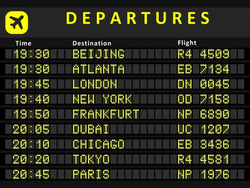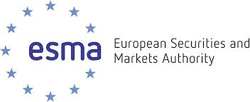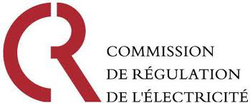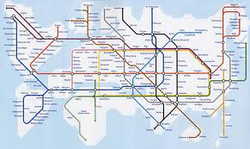
Feb. 18, 2015
Sectorial Analysis

February 17, 2015, as the previous "Contrat de Régulation Économique" (Economie Regulatory Contract), the firm Aéroport de Paris (ADP) has made available on its site to all "for consultation" the draft "Contrat de Régulation Economique ("Economic Regulatory Contract) for the period 2016 -2020.
Published in the wake of the meeting of the Board of ADP, the text is presented as a tool "for the Paris place", especially for air transport.
This shows that the document is primarily intended for investors and financial markets, the document being placed on the company website in the section for the "investors".
This illustrates the evolution from the traditional "contrats de plan" (plan contracts). But then, who are the parties to these types of contract?
Indeed, the very term "Regulatory contract" is new in public Law. It appears as a sort of modernization of "plan contract." The Conseil d'État (French State Council) finally admitted the contractual nature of these planning contracts. In these contracts, are parties were the State and the company in charge of a public service.
Because here the contract is an instrument of "economic regulation" the open public consultation draft rather expresses a global conception of ADP, the company which manages the Paris airports, for the future of the development of critical infrastructure that is the airport as the heart of global development of air transport.
The enterprise manager of the airport in the heart of the contract (rather than the State) in setting objectives for the coming four years is the letter and spirit of the French law of 20 April 2005 about Airports, which put the apparatus of this "Contrat de Régulation Economique" in place.
In this, the infrastructure manager is set by law as a "regulator of second degree", as can be a financial market enterprise. The company that manages and develops the Paris airports undoubtedly belongs to the category of " critical firms", as well it manages the future of the sector and helps to keep France a place in the world.
More, A.D.P. behaves like a Regulator, since it is carrying out the "public consultation", the consultation paper prepared by it, being placed on its site and developing its ambitions for the sector and for France. But A.D.P. also expressed as a financial and economic actor, emphasizing the competitive environment, demanding in passing more stability and clarity in the regulation in which it moves ...
That is why the consultation mechanism provided by the law must be more complex. Indeed, ADP can not be judge and jury. Therefore if the project raises observations, they must be formuled not to ADP but to the Ministries of Aviation and Economy, within a month. They shall communicate theiir content to ADP . Then the Commission consultative aéroportaire (French Airport Consultative Committee) will be consulted. At the end of this process, the "Contrat de Régulation Economique" will be signed.
Seing the end of the process, it remains in line with the plan contracts, since it remains the Economic Regulatory Contract is signed between the State and the essential infrastructure manager. But the consultation process shows firstly investors are the first recipients of the statements made by a privatized company presenting its draft primarily in terms of competitive context and international development and secondly the airlines that use daily services of the airports are also directly involved by theses questions of tarification.
Airlines protest against the increase in the money that will be asked. This will be imposed, since it is tarification and princing public policy. We are in unilateral rules. But it is indeed a "price" they feel to pay, they also heard a speech referring to competition in what the mechanism is presented as a "contract".
But then, does it take to admit that these "contracts for economic regulation" are not between two parties that are the state and the regulator of second degree that is the infrastructure manager but must be three, the State, the infrastructure manager and "stakeholders" that are mainly airlines?
This practical difficulty is much to the fact that the qualification of "contract" is difficult to justify in proceeding in which prevail unilateral mechanisms.

Jan. 20, 2015
Sectorial Analysis

The original spirit of the Common Agricultural Policy (CAP) was to think of agriculture as a sector unfolding in time, subject to natural hazards, including actors, both farmers and the population that is fed, having interests on which national states shall ensure.
The spirit of the new Common Agricultural Policy is different, even opposite, which explains the length of its gestation. Indeed, competition becomes the principle guarantor of innovation, fair prices for consumers and competitiveness of the European agricultural industry facing global competition, which leads to assist agricultural enterprises, to worry about products quality, away from the subtraction of these products of the principle of competition.
The political agreement was reached in 2013, the basic technical texts were completed in 2013 for the new apparatus be applicable to January 1, 2014, including a Regulation of 17 December 2013 establishing a common organisation of the markets in argricultural products (CMO).
It points out that the agricultural sector is subject to competition law only if the Community legislature didn't stipulate differently!footnote-16. The Regulation almost affirms the opposite principle: "It should be provided that the rules on competition relating to the agreements, decisions and practices referred to in Article 101 TFEU and to abuse of a dominant position apply to the production of, and the trade in, agricultural products, provided that their application does not jeopardise the attainment of the objectives of the CAP.". The Regulation details: A special approach should be allowed in the case of farmers' or producer organisations or their associations, the objective of which is the joint production or marketing of agricultural products or the use of joint facilities, unless such joint action excludes competition or jeopardises the attainment of the objectives of Article 39 TFEU.
On 15 January 2015 the European Commission launches a consultation on the "joint salling of olive oil, beef and veal livestock and arable crops, cases covered by the Regulation.
How the new balance will be between competition and regulation?!footnote-20
It is likely that future guidelines will be the place of expression of this balance.
Jan. 13, 2015
Breaking news

Dec. 3, 2014
Breaking news

Available in several languages, the document is titled: Dynamic telecoms market requires modern legal bases.
The consultation document intends to proceed with a progressive review". A first step of review will take place late 2015.
Operators have already protested about the narrowness of the consultation, in particular because the issue of optical fiber is not asked!footnote-5.
Updated: Sept. 25, 2012 (Initial publication: Oct. 7, 2011)
Sectorial Analysis

Translated Summaries
In The Journal of Regulation the summaries’ translation are done by the Editors and not by the authors
ENGLISH
Thematic Report (Energy): The French energy regulator publishes its first unfavorable opinion regarding the government’s proposed natural gas tariffs for residential customers.
The Commission de Régulation de l’Energie (CRE — French energy regulator) published an opinion “regarding the draft executive order regarding the regulated tariffs for natural gas publicly distributed by GDF Suez.” This non-binding opinion was published on September 29, 2011, and claims that it is not acceptable for the Government to leave natural gas prices unchanged because these prices do not cover GDF Suez’s costs and symmetrically prevent newcomers from competing with it.
ITALIAN
Relazione tematica (Energia): L’autorità di regolazione francese nel settore dell’energia ha reso pubblica il suo primo parere sfavorevole a proposito delle tariffe del gaz proposte dal governo per le utenze residenziali
La Commission de Régulation de l’Energie (CRE – l’autorità francese di regolazione nel settore dell’energia) ha reso pubblico un parare « riguardante la bozza di proposte di tariffe per il gaz naturale distribuito da GDF Suez ». Questo parere non vincolante è stato pubblicato il 29 settembre 2011 e afferma che non è possibile per il Governo di lasciare immutati i prezzi del gas naturale poiché questi prezzi non coprono i costi di GDF Suez e, al contempo, impedisce ai nuovi operatori di competere con tali costi.
.....................
Other translations forthcoming.
Updated: Sept. 10, 2012 (Initial publication: July 2, 2012)
Sectorial Analysis

Updated: Sept. 10, 2012 (Initial publication: June 18, 2012)
Sectorial Analysis

Updated: June 18, 2012 (Initial publication: June 10, 2012)
Breaking news

Updated: June 1, 2012 (Initial publication: May 24, 2012)
Breaking news

Updated: May 10, 2012 (Initial publication: May 5, 2012)
Breaking news

Updated: May 9, 2012 (Initial publication: April 19, 2012)
Breaking news

Updated: May 9, 2012 (Initial publication: April 23, 2012)
Breaking news

Updated: Jan. 16, 2012 (Initial publication: Oct. 6, 2011)
Translated Summaries

Updated: Jan. 16, 2012 (Initial publication: Oct. 7, 2011)
Translated Summaries

Updated: Jan. 4, 2012 (Initial publication: July 1, 2011)
Contributions

Updated: Jan. 4, 2012 (Initial publication: May 28, 2011)
Releases : I. Isolated Articles
Translated Summaries
ENGLISH
Two and a half years after having been established by the LME, the French Competition Authority has uncontestably acquired its “place in the sun” amongst the competition authorities of other countries, as demonstrated by multiple indicators.
ITALIAN
Articolo: L’Autorità garante della concorrenza tra “regolazione” e politica in materia di concorrenza
Due anni e mezzo dopo l’instaurazione da parte del LME, l’Autorità francese garante della libera concorrenza ha trovato il suo posto tra le diverse autorità degli altri paesi, così come è stato dimostrato da diversi indicatori.
SPANISH
Artículo: La Autoridad de la competencia, entre “regulación” y política competitiva.
Después de dos años y medio de haber sido establecido por el LME, la Autoridad francesa de la competencia ha incontestablemente adquirido su “lugar bajo el sol” entre las autoridades de la competencia de otros países, como demostrado por varios indicadores.
.....................
Other translations forthcoming.
Updated: Dec. 8, 2011 (Initial publication: Oct. 5, 2011)
Releases : Neutrality in Systems of Economic Regulation

Translated Summaries
ENGLISH
The subject of neutrality brings to my mind a certain number of preliminary ideas and reminiscences.
First of all, the image of Buddha comes to mind, because it alone expresses the extent to which neutrality is an endless subject, since by thinking about the fact that he isn’t thinking about anything, Buddha is still thinking about something. It also makes me think of contemporary music’s constant attempts to attain a form of neutrality: yet this goal remains unattainable, because it is evident that the search for the neutral, in a sound or a timbre, can probably never be found.
FRENCH
Tout d’abord, la figure du Bouddha, qui exprime à elle seule combien la question de la neutralité est un thème sans fin, car en pensant qu’il ne pense à rien, le Bouddha pense malgré tout à quelque chose.
Il me fait penser aussi à la musique contemporaine, à son souci constant d’atteindre une forme de neutralité ; préoccupation à jamais déçue lorsqu’elle reconnaît ultimement que le neutre, en ayant toujours une qualité – un son, un timbre - est probablement introuvable.
SPANISH
El principio de los estándares de la neutralidad (el ejemplo de estándares de contabilidad)
El tema de la neutralidad trae a luz un cierto número de ideas preliminares.
Para comenzar, la figura de Buda viene a mente, porque él sólo expresa la naturaleza interminable que es el tema de la neutralidad, ya que al pensar en el hecho de que él no piensa en absolutamente nada, Buda aún así piensa en algo. También me hace pensar el intento constante de la música contemporánea de alcanzar una forma de neutralidad: pero este objetivo permanece inalcanzable, porque es evidente que la búsqueda de lo neutral, en un sonido o un timbre, probablemente nunca se podrá encontrar.
.....................
Other translations forthcoming.
Updated: Oct. 27, 2011 (Initial publication: Oct. 6, 2011)
Releases : Neutrality in Systems of Economic Regulation

Translated Summaries
In The Journal of Regulation the summaries’ translation are done by the Editors and not by the authors
ENGLISH:
Nowadays, it’s necessary to define, initially, the framework of an impact survey. An impact survey is an analysis estimating the economic consequences of a bill (in Europe or in the US) in order to limit, reduce or compensate for negative impacts. It requires the prior adoption of the text.
ITALIAN
Nei giorni nostri, è necessario definire, inizialmente, la struttura di una valutazione d’impatto. Una valutazione d’impatto è uno studio che cerca di fare una stima delle conseguenze economiche dell’adozione di una legge (in Europa o negli Stati Uniti) in modo tale da limitare, ridurre o compensare le sue conseguenze negative. Tuttavia questo richiede l’adozione preliminare del testo.
.....................
Other translations forthcoming.
Updated: Oct. 7, 2011 (Initial publication: Oct. 7, 2011)
Contributions

Updated: Oct. 7, 2011 (Initial publication: Oct. 5, 2011)
Contributions

Updated: Sept. 19, 2011 (Initial publication: Sept. 14, 2011)
Contributions

